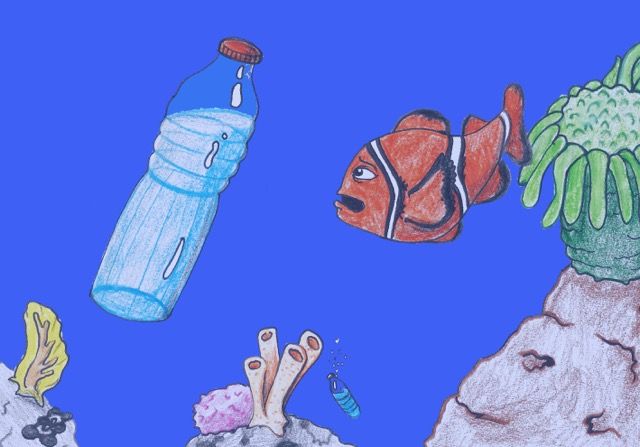Last year was a year full of climactic and environmental disturbances. It was the hottest year on record, not even owing to a particularly nasty El Niño. Rising seas are savagely cutting away at islands. Deforestation and the burning of fossil fuels are, according to an article in Discovery, “leaving more heat-trapping carbon dioxide and other greenhouse gases in the atmosphere.” In the United States, the people of Flint, MI have been prey to some particularly predatory water-management. Their lead-laden water and the East Coast’s bout with winter storms have left the country dealing with plumbing and weather crises. Not to buck the trend, but it seems as if we’ve got a plastics problem, too.
The Ellen MacArthur Foundation, an organization devoted to getting the globe on a “circular economy,” recently published a report finding that “in three decades, the world’s oceans will contain more discarded plastic than fish when measured by weight.” What’s surprising is that most people have little to no clue where their plastic is going. We’d assume it goes to the dump if we throw our plastics in the trash. This assumption is perilously wrong.
In the U.S., roughly 30 million tons of plastic are produced and most of it (some 28 million tons) never makes it to the dump. Instead, those millions of tons of discarded plastic end up in the nation’s waterways and make their way to the wide polymeric ocean via routes as yet undocumented. This mammoth influx of rubbish into the ocean is currently helping to grow and sustain what is commonly known as the Great Pacific Garbage Patch. The patch is made of plastics, sludge and debris. This patch, along with the rest of our oceans, is filling up more and more with our ill-begotten, ill-abandoned plastics.
Organizations like the Ellen MacArthur Foundation emphasize the urgent planetary crisis we will have on our hands if we don’t dramatically reduce the amount of plastic garbage we produce — and neglect — each year. Plastic, when populating landfills and water systems, degrades slowly and causes immediate harm to wildlife. We have all at some point seen quasi-documentaries bespeaking the dangers of plastic rings caught around the necks of birds, fish and penguins. The danger posed by plastic pollution to marine life is very real and seems to be gaining ground (or water) exponentially. Already in this newspaper, there have been numerous op-eds reviling the forms discarded plastics take — among them, microbeads found in toothpastes and artificial trees poorly recycled during the holidays.
Plastics are not going away, and we can’t do away with them altogether. Rather, we should be more aware of where our plastics end up (preferably the recycling bin). Simple awareness could help to limit much of the waste entering our oceans every year. Yet simple awareness is not enough. People should learn about and support the circular economy. A circular economy, though far from a reality at this time, manages the successful application, disposal and reapplication of a variety of industrial and non-industrial substances like plastics, food, energy and other materials that impact our global environment. It does what it sounds like — creates an avenue through which materials circulate for use and reuse, rather than linearly pollute. Whatever we try, it’s apparent that something must be done, else we grow a new plastic continent and our marine life becomes outnumbered.






















